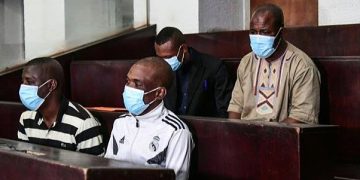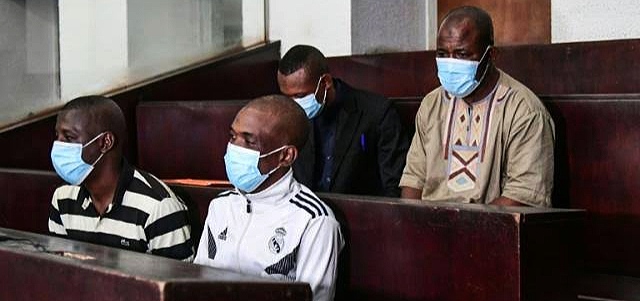A court in Ivory Coast on Wednesday handed down life terms to four Malian men convicted of abetting a jihadist attack on a beach resort that left 19 people dead.
The court in Abidjan, the country’s commercial hub, found the four “guilty of the deeds for which they are accused and sentences them to life imprisonment,” Judge Charles Bini announced.
The March 13, 2016 assault was the first jihadist attack in Ivory Coast, one of West Africa’s economic powerhouses.
In an operation echoing a jihadist massacre the previous year in Tunisia, three men wielding assault rifles stormed the beach at Grand-Bassam, a resort 40 kilometres (25 miles) east of Abidjan popular with Europeans, before attacking hotels and restaurants.
The 45-minute bloodbath ended when Ivorian security forces shot the attackers dead.
The 19 fatalities comprised nine Ivorians, four French citizens, a Lebanese, a German, a Macedonian, a Malian, a Nigerian and a person who could not be identified.
Thirty-three people of various nationalities were wounded.
Al-Qaeda’s North African affiliate, Al-Qaeda in the Islamic Maghreb (AQIM), claimed responsibility the same day.
It said the attack was in response to anti-jihadist operations in the Sahel by France and its allies, and targeted Ivory Coast for having handed over AQIM operatives to Mali.
Several dozen people were later arrested, including three suspected accomplices of the dead attackers, who were detained in Mali.
Eighteen were charged in Ivory Coast with acts of terrorism, murder, attempted murder, criminal concealment, illegal possession of firearms and ammunition “and complicity in these deeds,” said Public Prosecutor Richard Adou.
“We have to discourage the followers of these terrorist acts,” he said, summing up his case before Wednesday’s verdict.
“We have been confronted with horror and barbarity.”
Subsidiary roles
Of the 18, only four — Hantao Ag Mohamed Cisse, Sidi Mohamed Kounta, Mohamed Cisse and Hassan Barry — were present in court.
They allegedly played a subsidiary role.
One of them, Mohamed Cisse, said at the start of the trial on November 30 that he had worked with Kounta Dallah, described as the operational brain behind the assault, as a driver, “but I had no idea about his dirty work.”
The 14 others, including the suspected masterminds, are either on the run or being held in Mali, Aude Rimailho, a lawyer for French civilian plaintiffs, said before the trial.
Seven of these 14 were handed life sentences in absentia, and the other seven were acquitted.
The seven convicted in absentia included Mimi Ould Baba Ould El Moktar, who was arrested in 2017 by France’s anti-jihadist force in the Sahel, Operation Barkhane.
Ivorian prosecutors painted him as one of the ringleaders in the Grand-Bassam killings, while authorities in Burkina Faso describe him as the “operational chief” in an attack in the capital Ouagadougou in January 2016.
The Ivorian court issued an international search warrant for Kounta.
Defence lawyer Eric Saki said he had “mixed feelings” about the verdict.
“I am happy for those who have been declared totally innocent, but I am sad for the four who, from my point of view, should also have benefitted from an acquittal.”
The attack on Grand-Bassam was the first and so far deadliest in a string of sporadic attacks on countries on the Gulf of Guinea south of the Sahel.
It had a deeply chilling impact on foreign tourism in Ivory Coast — a big money-spinner in an economy battered by a post-election conflict in 2011 that claimed 3,000 lives.
AFP



































